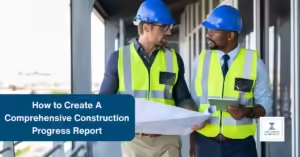Behind every successful construction project, a team manages construction operations from start to finish— spearheaded by a competent construction manager. A construction manager plays a crucial role in the industry, making or breaking an otherwise successful project. While the job scope is packed with overwhelming tasks, it can also be an intellectually stimulating and extremely rewarding opportunity for a construction professional.
Construction management positions are starting to attract people from various fields with related skill sets, such as geodetic, fieldwork, engineering, and project management in general — and there is a reason for that. According to the United States’ Bureau of Labor Statistics, jobs posts in construction management are expected to increase as high as 16 percent between the year 2012 to 2022. Additionally, construction management is also a high-paying career track, with the manager’s lowest offer of $50,000 and the top 10 percent earning as much as $145,000 or more!
Suppose you are an employee working in the construction industry. In that case, a professional who wants to climb the ladder to attain a more senior position, or someone just interested in how they work — the construction manager path is worth looking into. In this blog, let’s dive a little deeper into what nitty-gritty tasks construction managers engage in daily and the types of skills one must acquire be able to do them.
Reasons to Become a Construction Manager
Apart from the generous salary and benefits offered to construction managers, is there any other reason why this role is so appealing?
Ultimately, construction managers are in charge of everything that happens in a construction project — from overseeing all the activities down to construction crew management of the main contractors and the subcontractors, if there are any. It is generally a varied role where you will never get bored, and would surely be attractive to the right person.
Moreover, a recent survey from Owl Guru showed that 74% of construction managers are delighted with their work, and 54% believe that their job makes someone else’s life better and makes the world a better place to live in for the people today and for the years to come.
Responsibilities of a Construction Manager in Different Phases of the Project
Generally, construction managers are involved in the project from Day One. In most instances, they are the go-to person of the project owner with establishing their plans. They also go through a multitude of construction scheduling, estimating, costing, up to the closeout that happens at the conclusion of the project operations.
Here are the different responsibilities of a construction manager in every phase of a project and a breakdown of what they do in each one.
1. Design Phase
As said before, the construction manager is involved in the early phases of the project planning, so they work with the general contractor and the architects regarding the plans, methods, and sequence. Here’s what they do in the early stages of the project.
- Preparing cost budgets and estimates
- Establishing initial timelines and schedules
- Negotiating contracts with the owners and the rest of the stakeholders
- Collaborating with the designers to set final plans and specifications
- Hiring members of the construction team, including subcontractors and trade contractors (if there are any)
2. Construction Phase
Once the construction operations start, the construction manager is hands-on with monitoring the day-to-day workflows, keeping track of the progress versus the plan, and tracking the inventory of materials and equipment. They are also responsible whenever on-site issues or defects arise and think of a solution to ensure that everything goes smoothly until the project’s completion.
- Promptly responding to unexpected issues
- Setting backup plans and mitigating possible risks
- Delegating work and task management of all the office and on-site personnel
- Monitoring if all the aspects of the project are according to the initial timeline and budget
- Maximizing resources and inventory, such as workforce, building materials, equipment, and tools
3. Project Closeout
A construction manager’s role concludes by ensuring that the project complies with all the legal requirements and satisfies the building codes and restrictions. The construction manager is also responsible for formulating the project’s final snag list and checking if all aspects of the project are delivered according to the agreed scope and specifications.
- Fulfilling compliance with the federal and local construction laws
- Closely collaborating with the architects and engineers to optimize the final project output
- Ensuring that the construction punch list items are rectified before the project closeout
- Handing over the project to the owner at the best possible quality
- Implementing training and warranty procedures to the inhabitants of the project for maintenance
Traits an Effective Construction Manager Possess
The best construction managers in the industry are made, not born — and they don’t indeed become successful overnight. A manager has to possess a set of proven traits and skillset to be engaged in their work and be passionate about their projects.
While leadership is a sought-after skill with construction managers, it is not enough to be successful with what they do, especially in the industry where competition is tight and constantly growing. Here are the timeless traits that you have to learn and master if you want to be the best in this line of work, and don’t worry— it is applicable regardless of what generation or economic situation you are in:
1. Soft Skills
In construction, it is no surprise for professionals to not be as better communicators as those in the other industry. After all, mathematical and logical people are typically not good with words. However, construction managers are expected to deal with a lot of people, from clients to workers, so communication skill is the top requirement if you want to get to this level.
Good directives and task optimization insights you can adapt in your projects are ultimately pointless if you can’t express them to other people. Construction management is not only focused on the project itself but is also on managing people and the stakeholder’s expectations from the first day up to the handover phase.
2. Accessibility
Since construction is a business where things can happen unexpectedly, construction managers need to be accessible in case an emergency arises, sometimes even after working hours. They need to be prepared to always be on call in case of emergency, as they have the authority to make the difficult decisions for the project and are responsible if anything gets out of hand.
3. Technical Knowledge
In order to earn the trust and respect of the on-site workers, construction managers must not know the general idea of the project but also its nooks and crooks and most littlest details. They must be prepared to answer technical questions of the project stakeholders, be firm with their decision, and have the capability to defend their answers when asked.
Additionally, the morale of the whole construction team skyrockets when they are confident with the directives and delegations from their manager, a sure-fire way to bring the construction project to success.
4. Seeing The Bigger Picture
A construction manager is required to make split-second decisions regarding the minor issues that might arise and consider the big picture and keep an eye on the long-term progress of the project. Getting too caught up with minor problems can distract you from seeing the broader scheme of things, leading to small slips in the construction expenses and delays.
A construction manager must have the uncommon skill to “look ahead” and not only see where the project is at the end of a workday but a month from now. They must have a good estimate of the project budget and schedule to ensure that everything is aligned to the initial plans throughout the project timeline.
One way to streamline the tasks of a construction manager is by incorporating a construction scheduling software, like Pro Crew Schedule, to make sure that you are always on track and never left behind, no matter what aspect of the project operation you are in this moment. With this software, now is the best time to adapt it, and it will help you in any task you want to optimize.
The Career Path to Becoming a Construction Manager
With the growing demand of businesses for taller heights, the demand for construction managers who will handle the work skyrockets, especially in recent years. Now the question is, if you want to become one, where should you start? Fortunately, with the right approach and a little bit of planning and research, anyone of any gender or age can become a construction manager in this day and age.
To begin, establish a career plan to get where you want to be. Next, find out the educational requirement and the experience qualifications of construction managers. Some of the commonly chosen options are the following:
- College degree in BS Civil Engineering or Construction Management
- Getting an apprenticeship or internship in a construction management company
- Climbing up the corporate ladder from a junior position, senior or head, the eventually managerial position
After everything is said and done, we can conclude that a construction manager’s job is an investment; you invest your time, resources, year of experience that will ultimately lead you to a rewarding career in the long run, and discover that it is very well worth it.







